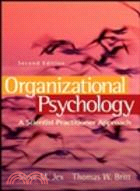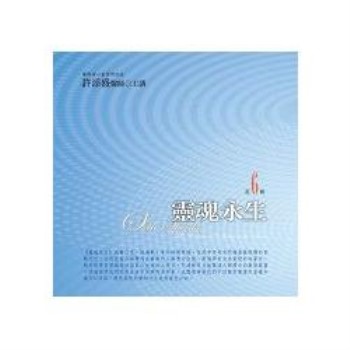| FindBook |
有 1 項符合
ORGANIZATIONAL PSYCHOLOGY: A SCIENTIST-PRACTITIONER APPROACH 2/E的圖書 |
 |
ORGANIZATIONAL PSYCHOLOGY: A SCIENTIST-PRACTITIONER APPROACH 2/E 作者:JEX 出版社:JOHN WILEY & SONS,LTD 出版日期:2008-01-01 |
| 圖書館借閱 |
| 國家圖書館 | 全國圖書書目資訊網 | 國立公共資訊圖書館 | 電子書服務平台 | MetaCat 跨館整合查詢 |
| 臺北市立圖書館 | 新北市立圖書館 | 基隆市公共圖書館 | 桃園市立圖書館 | 新竹縣公共圖書館 |
| 苗栗縣立圖書館 | 臺中市立圖書館 | 彰化縣公共圖書館 | 南投縣文化局 | 雲林縣公共圖書館 |
| 嘉義縣圖書館 | 臺南市立圖書館 | 高雄市立圖書館 | 屏東縣公共圖書館 | 宜蘭縣公共圖書館 |
| 花蓮縣文化局 | 臺東縣文化處 |
|
|
- 圖書簡介
Thorough and up-to-date coverage of both the science and practice of organizational psychology
This Second Edition reflects the latest developments and research in the field using a scientist-practitioner model that expertly integrates multicultural and international issues as it addresses the most current knowledge and topics in the practice of organizational psychology.
Beginning with a foundation of research methodology, this text examines the behavior of individuals in organizational settings and shows readers how psychological models can be used to improve employee morale, productivity, and quality of service.
Written in an accessible style that brings the material to life, author Steve Jex and new coauthor Thomas Britt use their experiences as consultants and educators to bring new features to the Second Edition, including:
*
Updated chapters, particularly those on job attitudes, teams, and leadership
*
New "People Behind the Research" and "Illuminating Examples" boxes
*
New coverage of workplace stress, teams, and multicultural socialization
*
More material on personal difference, personality, and considerations of diversity
*
Extended coverage of financial incentives and executive compensation
*
Using descriptive cases to illustrate workplace issues, Organizational Psychology, Second Edition thoroughly addresses the major motivational theories in organizational psychology and the mechanisms that organizations use to influence employees' behavior. - 作者簡介
Steve M. Jex, PhD, is a well-known researcher in workplace stress and consults for many organizations, including the United States Army. He teaches and directs graduate students at Bowling Green State University.
Thomas W. Britt, PhD, is a social psychologist specializing in work and family. He brings that expertise as well as his teaching experience with undergraduates to this new edition of Organizational Psychology. He teaches and directs graduate students at Clemson University. - 目次
Preface.
Chapter 1. Introduction To Organizational Psychology.
What Is Organizational Psychology?
Organizational Psychology In Context.
The Scientist-Practitioner Approach.
Historical Influences In Organizational Psychology.
Recent Past And Beyond.
The Chapter Sequence.
Chapter Summary.
Suggested Additional Readings.
Chapter 2. Research Methods And Statistics.
Methods Of Data Collection.
Special Issues In Data Collection.
Special Issues In Data Collection.
Statistical Methods In Organizational Psychology.
Chapter Summary.
Suggested Additional Readings.
Chapter 3. Attraction And Socialization.
The Recruitment Process: An Organizational Perspective.
The Recruitment Process: The Applicant's Perspective.
Organizational Socialization.
The Impact Of Diversity On Organizational Socialization.
Chapter Summary.
Suggested Additional Readings.
Chapter 4. Productive Behavior In Organizations.
Defining Productive Behavior.
Organizational Citizenship Behavior.
Innovation In Organizations.
Chapter Summary.
Suggested Additional Readings.
Chapter 5. Job Satisfaction And Organizational Commitment.
Job Satisfaction.
Organizational Commitment.
Chapter Summary.
Suggested Additional Readings.
Chapter 6. Counterproductive Behavior In Organizations.
Defining Counterproductive Behavior.
Ineffective Job Performance.
Employee Absenteeism.
Employee Turnover.
Less Common Forms Of Counterproductive Behavior.
Chapter Summary.
Suggested Additional Readings.
Chapter 7. Occupational Stress.
A Brief History.
Approaches And Terminology.
Occupational Stress Terminology.
Occupational Stress Models.
Workplace Stressors.
Reducing The Impact Of Workplace Stressors.
Cross-Cultural Occupational Stress Research.
Chapter Summary.
Suggested Additional Readings.
Chapter 8. Theories Of Motivation.
Defining Motivation And Theoretical Approaches.
Need-Based Theory Of Motivation.
Cognitive Process Theory Of Motivation.
Self-Determination Theory.
Job-Based Theories Of Motivation.
The Practical Value Of Motivation Theories.
Chapter Summary.
Suggested Additional Readings.
Chapter 9. Organizational Applications Of Motivation Theory.
Some Basic Assumptions.
Behaviors Organizations Attempt To Influence.
Organizational Reward Systems.
Motivation Through The Design Of Work.
Organizational Disciplinary Procedures.
Chapter Summary.
Suggested Additional Readings.
Chapter 10. Leadership And Influence Processes.
Defining Leadership.
General Approaches To Leadership.
Modern Theories Of Leadership.
Power And Influence In Organizations.
Chapter Summary.
Suggested Additional Readings.
Chapter 11. Introduction To Group Behavior.
Why Do People Join Groups?
Defining Characteristics Of Groups.
Group Structure.
Stages Of Group Development.
Inter-Group Dynamics And Behavior.
Types Of Inter-Group Interactions.
Predictors Of Inter-Group Interaction Patterns.
Inter-Group Conflict.
Improving Quality Of Inter-Group Relations.
Chapter Summary.
Suggested Additional Readings.
Chapter 12. Team Effectiveness.
Defining Team Effectiveness.
Models Of Team Effectiveness.
Determinants Of Team Effectiveness.
Enhancing The Effectiveness Of Teams.
The Future Of Teams In Organizations.
Chapter Summary.
Suggested Additional Readings.
Chapter 13. Organizational Theory And Design.
What Is An "Organizational Theory"?
Major Organizational Theories.
Determinants Of Organizational Design.
Recent Innovations In Organizational Design.
Research On Organizational Design.
The Future Of Organizational Design.
Chapter Summary.
Suggested Additional Readings.
Chapter 14. Organizational Culture.
Defining Organizational Culture.
Models Of Organizational Culture.
Manifestations Of Organizational Culture.
The Development Of Organizational Culture.
Measuring Organizational Culture.
Changing Organizational Culture.
The Impact Of Organizational Culture.
Chapter Summary.
Suggested Additional Readings.
Chapter 15. Organizational Change And Development.
What Is Organizational Development And Why Is It Used?
A Brief History Of Organizational Development.
The Theory Base Of Organizational Development.
Organizational Change Interventions.
Conditions Necessary For Successful Organizational Change.
Evaluation Of Organizational Development Programs.
Special Issues In Client -- Consultant Relationships.
Chapter Summary.
Suggested Additional Readings.
References.
Author Index.
Subject Index.
|











